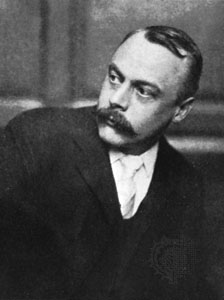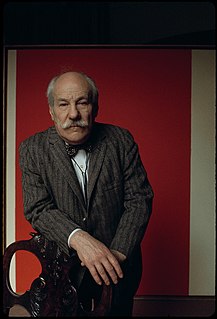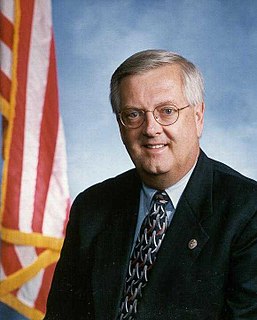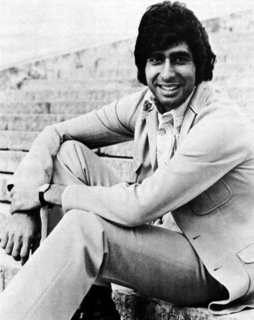A Quote by Paul Auster
This was the first time he had seriously confronted what he was doing, and the force of that awareness came very abruptly - with a surging of his pulse and a frantic pounding in his head. He was about to gamble his life on that table, and the insanity of that risk filled him with a kind of awe.
Related Quotes
Then suddenly the Mole felt a great Awe fall upon him, an awe that turned his muscles to water, bowed his head, and rooted his feet to the ground. It was no panic terror - indeed he felt wonderfully at peace and happy - but it was an awe that smote and held him and, without seeing, he knew it could only mean that some august presence was very, very near.
We may gamble on outsmarting the law; we may even gamble on the leniency of man and the mercy of God-but no man ever won a gamble with his own conscience. Even should he think he has beaten his conscience into submission, his misdeeds still leave their mark upon him. Anyone who gambles against this fact has already lost his gamble.
There was once a Bald Man who sat down after work on a hot summer's day. A Fly came up and kept buzzing about his bald pate, and stinging him from time to time. The Man aimed a blow at his little enemy, but — whack — his palm came on his head instead; again the Fly tormented him, but this time the Man was wiser and said: YOU WILL ONLY INJURE YOURSELF IF YOU TAKE NOTICE OF DISPICABLE ENEMIES.
Moments later a huge male with a cropped mohawk came out. Rehvenge was dressed in a perfectly tailored black suit and had a black cane in his right hand. As he came slowly over to the Brotherhood's table, his patrons parted before him, partly out of respect for his size, partly out of fear from his reputation. Everyone knew who he was and what he was capable of: Rehv was the kind of drug lord who took a personal interest in his livelihood. You crossed him and you turned up diced like something off the Food Channel.
The pitch to which he was aroused was tremendous. All the fighting blood of his breed was up in him and surging through him. This was living., though he did not know it. He was realizing his own meaning in the world; he was doing that for which he was made.... He was justifying his existence, than which life can do no greater; for life achieves its summit when it does to the uttermost that which it was equipped to do.
Billy covered his head with his blanket. He always covered his head when his mother came to see him in the mental ward - always got much sicker until she went away. It wasn’t that she was ugly, or had bad breath or a bad personality. She was a perfectly nice, standard-issue, brown-haired, white woman with a high school education. She upset Billy simply by being his mother. She made him feel embarrassed and ungrateful and weak because she had gone through so much trouble to give him life, and to keep that life going, and Billy didn’t really like life at all.
Step back in time; look closely at the child in the very arms of his mother; see the external world reflected for the first time in the yet unclear mirror of his understanding; study the first examples which strike his eyes; listen to the first words which arouse within him the slumbering power of thought; watch the first struggles which he has to undergo; only then will you comprehend the source of his prejudices, the habits, and the passions which are to rule his life. The entire man, so to speak, comes fully formed in the wrappings of his cradle.
When father was younger than me he came to New York to be in musicals and was in a number of them. But he, at that time in his life, didn't feel he could fully commit to a creative life - he had this voice in the back of his head that said, "I need to make money." So that propelled him to open up an ice cream parlor, which then spawned into a number of different food businesses and took over his life for 20 years.
Who shall blame him? Who will not secretly rejoice when the hero puts his armour off, and halts by the window and gazes at his wife and son, who, very distant at first, gradually come closer and closer, till lips and book and head are clearly before him, though still lovely and unfamiliar from the intensity of his isolation and the waste of ages and the perishing of the stars, and finally putting his pipe in his pocket and bending his magnificent head before her—who will blame him if he does homage to the beauty of the world?
The sobs and tears of joy he had not foreseen rose with such force within him that his whole body shook and for a long time prevented him from speaking. Falling on his knees by her bed. He held his wife's hand to his lips and kissed it, and her hand responded to his kisses with weak movement of finger. Meanwhile, at the foot of the bed, in the midwife's expert hands, like the flame of a lamp, flickered the life of a human being who had never existed before.
I remember the day before my dad died, I was in a hospital room with him, and he had lived a long life. He was 94, and I helped him get up, and there were two windows separated by the partition. I took him to the first window, and he kind of found his way to the second window, and on the way there was a mirror, and he looked into it, and I saw through the corner of my eye, I remember the look on his face. What came over his face was "So I'm here. I've crossed that bridge."


































